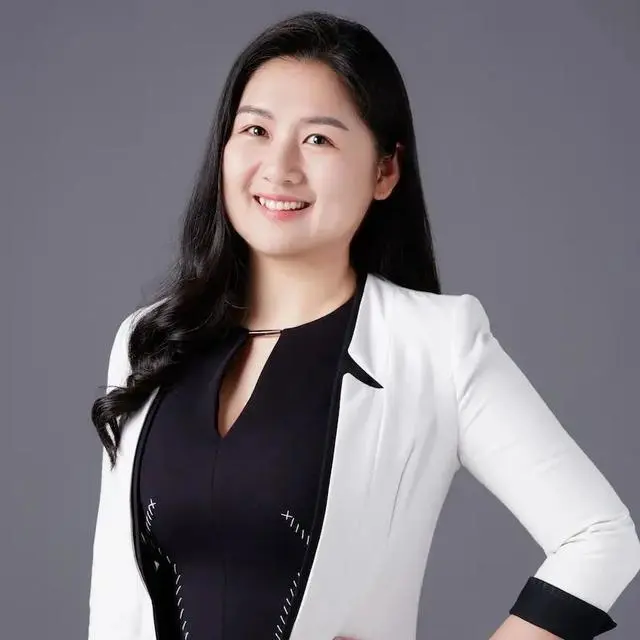Wonder Sir Founder on the State of Rare Disease Patient Organizations in China

This is the last part of my conversation with Wonder Sir founder Chen Yiwei. You can find our interview's first and second segments here if you didn't catch it earlier. In the first part, we delved into China's definition of rare diseases and the latest foreign CGT investment policies. In the second part, we explored the disconnection among stakeholders within China's rare disease patient care ecosystem and offered practical insights for enhancing the operations of international pharmaceutical companies in the country.
Kelly: Before founding Wonder Sir, you spent many years studying and working in the rare disease field in Germany. When assessing Chinese rare disease patient organizations compared to their Western counterparts, how would you rate their professionalism, financial backing, and overall influence?
Chen Yiwei: First, there are fewer rare disease patient organizations in China than Europe and the United States. I conducted a study around 2021 and compiled a list of active organizations with fixed names, totaling 130. Some organizations focus on a specific disease, and there might be multiple organizations. For example, hemophilia has been established for a long time and has many patients. Each province has its hemophilia patient organization. For some diseases with fewer cases, one organization might cover multiple diseases within one category.
I also researched the origins of these organizations. The founders are mostly family members of patients. This is not surprising considering that roughly 50% of rare disease patients are children diagnosed before age 18. So, when people start these organizations, it's not because they have the ability or knowledge; it's destiny that has chosen them. As a result, most founders often possess limited professional expertise, even though their roles often necessitate specialized knowledge.
For example, patients with rare genetic diseases want to prevent having another affected child in their families. So, they need knowledge about genetic counseling. These issues fall on the shoulders of organizational leaders. As a result, Wonder Sir started offering courses in genetic counseling in 2022.
I was also asked questions by organizations about collaborating with pharmaceutical companies to find patients, including how to work with companies, handle patient privacy, and set compensation. I hope more professionals and companies can get involved to help transform these organizations into more professional entities.

Wonder Sir Founder Chen Yiwei
Second, cooking without rice is hard, meaning they need financial support. Most of these organizations are not registered with the Civil Affairs Department, so they're not regulated. They can only be considered as grassroots mutual aid groups. One of the reasons they're not registered is because they lack sustainable funding to operate. I remember a survey in 2018 where around 80% to 90% of rare disease patient organizations had an annual budget of only 20,000 RMB.
In comparison, many patient organizations abroad are very professional in terms of both expertise and fundraising capabilities. They have well-established fundraising mechanisms and sources alongside dedicated research departments. They can review research projects, promote research on their own, and often have their own foundations. In contrast, these two functions are largely absent in the majority of patient organizations in China.
So, we are lagging by a lot, and if we follow the path of Europe and America step by step, it will take a long time. But can we take a different path and innovate?
Consider this: Could we establish a platform where the numerous passionate scientists available can be easily accessed when required? Also, can we collaboratively create a foundation? Instead of each rare disease maintaining its own foundation, could there be a shared foundation where contributions, fundraising efforts, and expenditures are pooled to meet the diverse needs of all involved?
On influence, we're still in a relatively early stage but on an upward trend.
Everyone realizes we can influence policies together, like writing letters to the health insurance bureau, initiating media campaigns, conducting media interviews, etc. People are more aware, but the impact on policy is still quite limited.
There's still a lot of room for progress and improvement. For instance, there's still no real policy or regulation specifically for rare diseases in China, not at the level of a law. There are some references to rare diseases in different laws, but it's not a cohesive policy. Again, look at the Orphan Drug Act in the United States; it became a law because patient communities tirelessly pushed for it.
Another thing that may be limiting patient organizations’ influence is that they tend to focus solely on their diseases. Attention can't be focused on thousands of conditions. It's too scattered. I often advise them that during Rare Disease Day every year, we should promote the theme of rare diseases, not just our individual diseases, or at least a broader disease category like metabolic diseases, because of their commonalities and shared resources. But my ideas haven't had a big impact.
Finally, communication between Chinese and foreign organizations exists but is insufficient. Many diseases have international alliances; organizations from each country can join these alliances, and global resources can be shared. However, many Chinese organizations are unaware of this, possibly due to their limited knowledge and expertise.
About Chen Yiwei
Founder of the Genetic and Rare Disease Science Popularization Platform "豌豆Sir"
2022 Ginkgo Fellow
Distinguished Research Fellow at the CEIBS Research Center for Smart Healthcare
Council Member of the Shanghai Foundation for Rare Diseases
Secretary-General of the Academic Board of Orphan Drug, China Biomedical Industry Chain Innovation and Transformation Alliance
Graduated with a bachelor's degree from the Chinese University of Hong Kong, obtained master's and doctoral degrees from Heidelberg University in Germany, and has over ten years of experience in genetics and gene therapy research and development. In 2016, initiated the Genetic and Rare Disease Science Popularization Platform "豌豆Sir."
Currently serves as the founder of the Chinese Medical and Research Network of Lesch–Nyhan syndrome (LNS), council member of DEBRA China, member of the Academic Committee of the "Chinese Medical Case Repository," member of the Genetics and Reproductive Special Committee of the Cross-Straits Medicine Exchange Association, member of the Genetics and Developmental Diseases Branch of the China International Exchange and Promotive Association for Medical and Health Care, and member of the Clinical Genetics and Genetic Counseling Special Committee of the Shanghai Society of Genetics.
About 豌豆Sir (Wonder Sir):
Established in 2016 by Dr. Chen Yiwei as a leading genetic and rare disease science popularization platform in China, its mission is to "make the rare seen." Over the past seven years, in collaboration with dozens of clinical experts in the rare disease field, it has provided services to nearly a hundred rare disease patient organizations in China. It received the Outstanding Contribution Award from "Guokr Science Popularization" in 2020 and the Rare Disease Industry Contribution Award from the "Golden Snail Award" in 2022. It is one of the most influential scientific communication platforms in the field of rare diseases in China.





